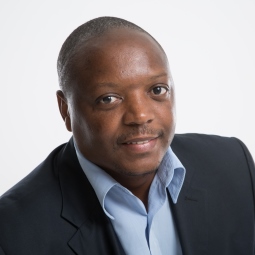CSIR laser technologist makes SA 2012 London Olympics team as archery coach
Today, ordinary people can directly benefit from innovative technologies as soon as they are conceived. One such case is that of Karen Hultzer, who is benefiting from the use of laser technology to further improve her archery techniques.
Hultzer has been included in South Africa's team to represent the country at the 2012 London Olympics. She is coached and managed by CSIR senior laser technologist, Johan Steyn. He uses his knowledge of lasers to the benefit of his charge for improved accuracy.
Today, ordinary people can directly benefit from innovative technologies as soon as they are conceived. One such case is that of Karen Hultzer, who is benefiting from the use of laser technology to further improve her archery techniques.
Hultzer has been included in South Africa's team to represent the country at the 2012 London Olympics. She is coached and managed by CSIR senior laser technologist, Johan Steyn. He uses his knowledge of lasers to the benefit of his charge for improved accuracy.
"We knew that there was a 90% chance that we would qualify for the Olympics and this was confirmed when the South African Sports Confederation and Olympics Committee (SASCOC) announced the team for the Olympics," says Steyn. "It has never crossed my mind that one day I will represent my country at the Olympics." "I feel humble and honoured," says Steyn, adding, "archery, art and science are what I live for."
Steyn says that as much as he loves his work in the labs, working with small teams of laser scientists, "sometimes it is nice to go out a bit and do other things outside your day-to-day job. Maybe the common denominator is people," he says.
CSIR National Laser Centre manager, Dr Ndumiso Cingo, comments on Steyn's achievement, "All Johan's colleagues at the CSIR National Laser Centre are immensely proud of his contribution. We are even prouder still that he also utilises laser technology in his coaching techniques " just another thing that lasers can do well," he quips.
Steyn is in the process of building a pointing device " similar to a laser pointer " to assist Hultzer with her form. He hopes that the device will help her accuracy during training. "One of the methods is to strap the laser pointer on the athlete's head,"notes Steyn. Hultzer will only be able to use it during training, but it could help diagnose and correct her form (posture).
Steyn is confident that his charge is going to do well at the Olympics. However, he warns that there are a lot of things that need to be factored in, such as weather, particularly the wind. "I think she will do well because she is used to training in bad weather conditions in Cape Town. I have a good feeling about this challenge," he says.
As the coach, Steyn will spot for Hultzer. In archery, unlike other sports where coaches sit on the sidelines, he is allowed to stand behind her about 5 m away and give instructions such as correcting her form (i.e. the positioning of her shoulders upon aiming her bow).
Steyn says that Hultzer will be competing against 64 archers and some of these athletes play archery for a living. Here in South Africa, explains Steyn, no one can afford to earn a living through the sport. "The sport is simply not big enough to be played professionally."
Steyn expressed his heartfelt appreciation for the support he has received from the CSIR. "My bosses know that my participation - as a coach and manager - at the 2012 London Olympics is in the national interest," concludes Steyn.


